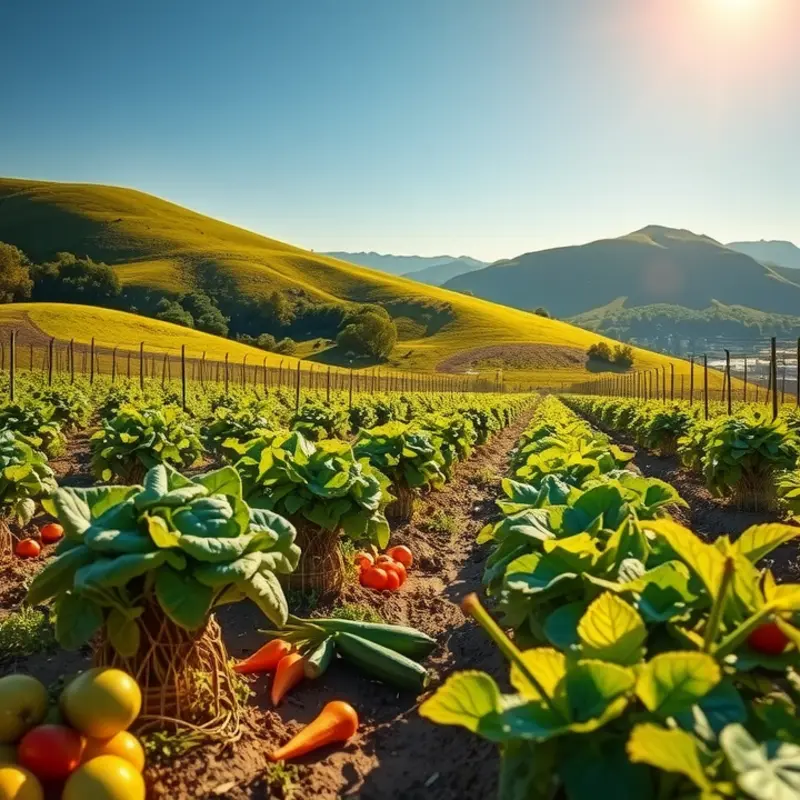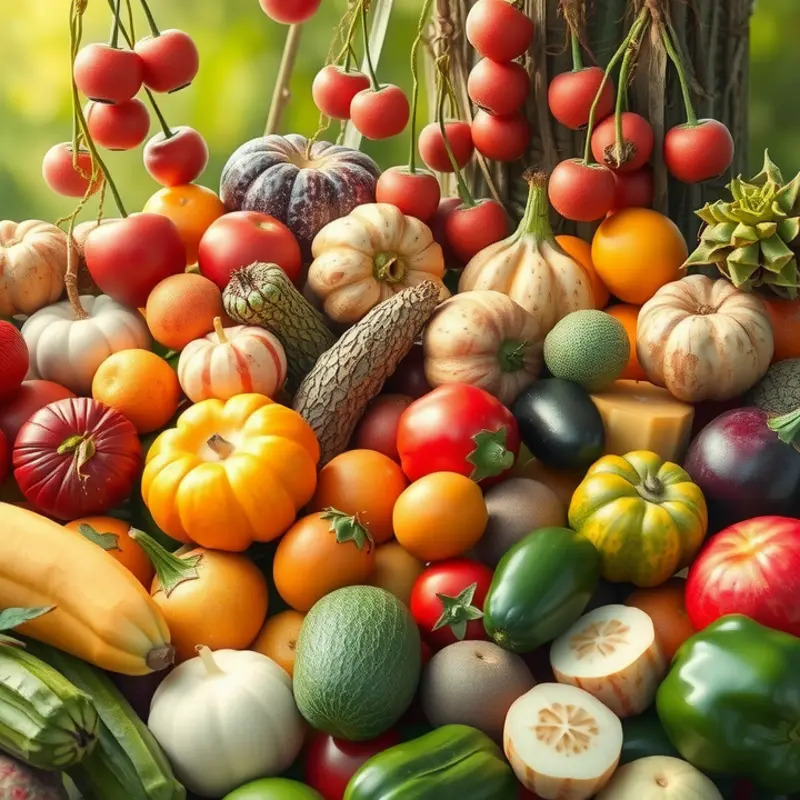With the growing demand for palm oil in various products, understanding its environmental repercussions is more crucial than ever. Deforestation, biodiversity loss, and high carbon emissions associated with palm oil cultivation threaten our planet. For environmentally-conscious individuals, making informed food choices can dramatically reduce these impacts. Discover how our decisions drive change and protect the environment while still enjoying the foods we love.
The Environmental Toll of Palm Oil Cultivation

Palm oil, the most widely consumed vegetable oil, comes at an environmental price that is often overlooked. The demand for palm oil has skyrocketed, leading to significant environmental damage. Its cultivation has become synonymous with deforestation, habitat destruction, and increased carbon emissions.
Forests, particularly in Southeast Asia, are rapidly being cleared to make way for palm oil plantations. This deforestation is not just about tree loss; it disrupts entire ecosystems. Vast tracts of wilderness, once home to countless species, are irreversibly transformed. The iconic orangutan, among other species, is on the brink of extinction due to habitat loss. These forests are carbon sinks, absorbing vast amounts of CO2. Their destruction releases this stored carbon back into the atmosphere, contributing to climate change.
Burning peatlands to establish new plantations is another catastrophic practice. These areas, rich in organic material, release significant carbon emissions when disturbed. This contributes to soil degradation and results in increased air pollution, affecting both the local environment and global climate. The fires set to clear these lands often burn out of control, wreaking havoc on biodiversity and human health.
The fragmentation of habitats creates isolated wildlife populations, increasing the risk of inbreeding and reducing genetic diversity. This isolation often leads to human-wildlife conflicts, especially as displaced animals venture into nearby plantations and settlements in search of food. Such interactions can lead to dangerous situations for both humans and animals. Efforts to develop sustainable palm oil practices are underway, but they struggle against market forces driven by consumer demand.
The palm oil issue isn’t isolated to production; consumers also have a role to play in fostering change. Mindful choices can drive more sustainable practices. Looking for products with certified sustainable palm oil can lead to better outcomes for the environment. Additionally, exploring various dietary options could be beneficial. For example, this Mediterranean chickpea salad offers a delicious alternative without relying on ingredients that contribute heavily to environmental degradation.
As consumers, understanding the impacts of our choices is vital. Raising awareness about palm oil’s environmental toll can lead to more informed decisions. Choosing products made with accountability and environmental stewardship in mind can begin to influence cultivation practices positively. Collective action on a global scale is imperative to address this pressing issue, safeguarding both our planet and its incredible biodiversity.
Choosing Alternatives: Fueling Change with Conscious Choices

Palm oil’s pervasive use is rooted in its efficiency and cost-effectiveness. However, the environmental costs demand sustainable alternatives. Recognizing these alternatives is crucial for consumers looking to make eco-friendly choices.
Sustainable Oils:
A variety of oils offer sustainable benefits that overshadow palm oil’s convenience. Sunflower oil, produced from sunflowers cultivated in environments less likely to involve deforestation, is one option. It is rich in healthy fats and can serve nearly any culinary purpose palm oil does. Olive oil, particularly extra virgin, is another robust option. It is a staple of the Mediterranean diet, valued for its health benefits and less intensive environmental footprint. Olive oil is produced through traditional farming methods which prioritize soil health and biodiversity.
Plant-Based Alternatives:
Beyond traditional oils, plant-based alternatives offer promising solutions. Algal oil, derived from algae, stands out for its minimal environmental impact. Grown in controlled facilities, it requires little land and no deforestation, providing a renewable and sustainable source. Coconut oil is yet another alternative, though it requires scrutiny of farming practices to ensure sustainable harvesting.
These alternatives, while promising, often come with a higher price tag. Still, monetary cost needs to be weighed against environmental preservation. As consumers, our choices influence market trends, pushing companies towards greener practices.
Driving Market Change:
Consumer awareness is vital. By selecting eco-friendly products, market demand shifts, prompting companies to adapt. Supporting brands that engage in sustainable practices encourages the industry to prioritize environment over short-term profit. It’s not only about choosing sustainable alternatives but also about reducing overall demand. Simple choices like using oils sparingly or selecting recipes that use less oil contribute to this cause.
For those following specific diets, there are creative ways to adopt these alternatives. For instance, in ketogenic cooking, which typically leans on high-fat ingredients, alternatives like olive or coconut oil in recipes such as creamy garlic butter chicken provide similar moisture and flavor without the environmental cost of palm oil.
In conclusion, our choices matter. By opting for sustainable oils and plant-based alternatives, we can significantly impact the global push towards eco-friendly practices. Consumers hold the power to fuel meaningful change, and it begins with conscious decision-making in our daily lives.
Final words
Palm oil’s environmental impact is significant and multifaceted. By consciously opting for sustainable and eco-friendly food alternatives, each of us can help mitigate these adverse effects. Knowledge is power, and through collective effort, we can encourage better practices within the food industry. As consumers, our choices can drive demand for sustainable products, fostering a healthier environment for future generations. Together, let’s champion a food system that prioritizes sustainability, respect for nature, and the well-being of our planet.








